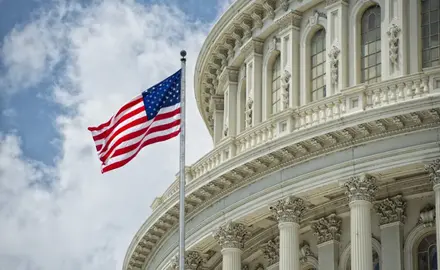Since Donald Trump’s election and the Republican capture of the Senate, we have seem many headlines saying Democrats are “racing to confirm judges.”
And yes, we made progress with last week’s “Judge-a-Rama.” The Senate is on track to confirm an exceptional number of stellar nominees put forward by President Biden. But there is still much more to be done and we are running out of time.
It was good to see Senate Majority Leader Schumer (D-N.Y.) keep senators working late to move nominations in the week before Thanksgiving.
But now the Senate is in recess and won’t be back until December for just three more weeks of the lame duck session. A number of critical nominations — including most importantly, nominees for the circuit courts of appeals — must have votes.
Circuit courts of appeals are the courts just below the Supreme Court. They decide tens of thousands of cases a year that affect the lives, health and well-being of all of us. Each circuit’s jurisdiction covers multiple states. The four circuit nominees awaiting votes account for 16 states (plus Puerto Rico) combined.
There are reports that Senate Democrats have cut a deal with Republicans to abandon efforts to confirm these circuit court nominees. If this is true, it is a travesty.
It is a travesty for the more than 100 million people covered by these courts. And it is a travesty for the signal it sends about the commitment to the long, hard fight we have ahead of us against the nominees that we know Trump will put forward over the next four years, with a demonstrated commitment not to justice for all but rather to protecting the rich and powerful.
It’s important to understand the contrast between the exceptional nominees that may be left behind and the kind of nominees we can expect to see from the incoming Trump administration.
The circuit court nominees on the calendar include Adeel Mangi, a talented litigator who has done pro bono work supporting religious freedom, for the Third Circuit Court of Appeal; Sixth Circuit nominee Karla Campbell, who has devoted a career to protecting the rights of workers; Fourth Circuit nominee Ryan Park, who defended the University of North Carolina’s affirmative action admissions policy and First Circuit nominee Julia Lipez, who currently serves as a Maine Superior Court Justice and has worked with survivors of sexual trafficking.
Contrast that with Trump’s appellate judges:
- Former Clarence Thomas clerk and Fifth Circuit James Ho wrote a ruling that upheld a Texas “bounty hunter” law that allows people to file lawsuits for damages against anyone who helps someone obtain an abortion
- Conservative ideologue and Fifth Circuit Trump judge Andrew Oldham, joined by Trump judges James Ho and Kyle Duncan, threw out a Mississippi law and ruled that absentee ballots must be actually received by state officials by election day, seriously harming the use of absentee ballots across the country.
- Voting rights opponent and Eighth Circuit Trump judge David Stras ruled that neither the NAACP nor private individuals can sue to protect their rights under the federal Voting Rights Act.
- Trump D.C. Circuit judge Justin Walker wrote an opinion that threw out federal rules setting fuel efficiency standards for tractor-trailers as part of the effort to combat greenhouse gases.
These are the stakes. Trump ordered Republicans in the Senate to stop confirming Biden’s judicial nominees during the lame-duck session. The Senate Republicans dutifully obeyed their dear leader.
Now we will see if we have what it takes to fight back.
I have seen firsthand what Schumer can make happen. During my 10 years as a mayor in the state of New York, I often said that the best thing that could happen to you is to have Chuck Schumer as your senator. He’s proven himself to be tenacious and resourceful when necessary.
We believe that now it is necessary again. We must win this fight for fair-minded judges who uphold the rights of all of us, not just the rich and powerful.



